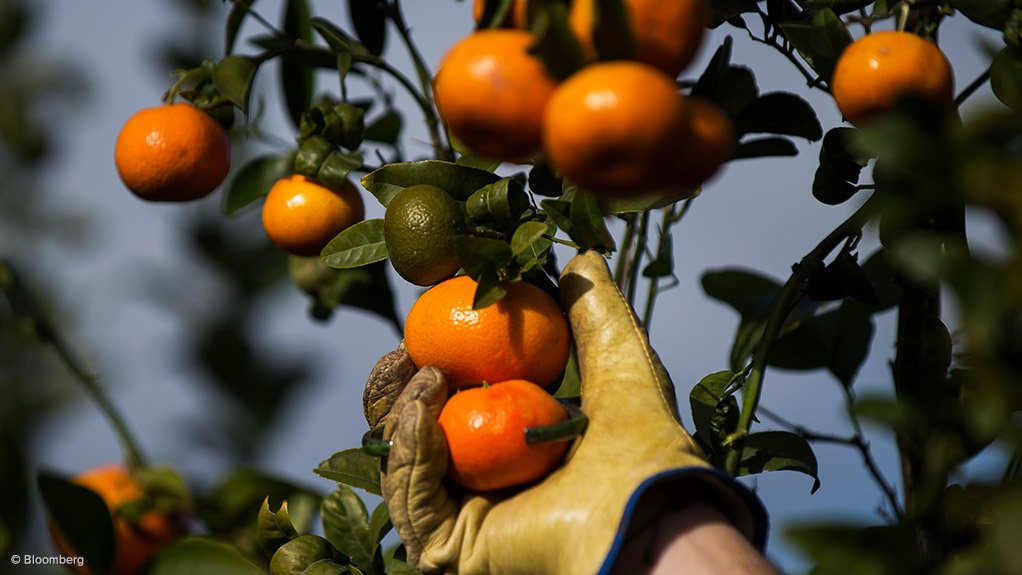CGA says there is no ‘greening’ disease threat for South African citrus
The Citrus Growers’ Association of Southern Africa (CGA) has dispelled media reports claiming the citrus industry and European trade are being threatened by a new greening disease.
The disease referred to by media reports, African Citrus Greening (ACG), is under official control in South Africa through the prevention of movement of propagation material from greening areas to greening-free areas, CGA explains.
It adds that ACG is not a threat to the future of the South African citrus industry and that growers continue to implement stringent phytosanitary measures to safeguard produce against disease and pests.
Notably, the disease cannot spread by fruit or seed; therefore, any suggestions that export citrus can spread this disease are incorrect.
Some media outlets are incorrectly reporting that South Africa "faces a new disease threat" in the form of "the African strain of the citrus-greening disease". This also incorrectly conflates two diseases.
Huanglongbing or Asian Citrus Greening, and sometimes referred to as Yellow Dragon, is a feared citrus disease and has caused devastation in some citrus-producing regions throughout the world. This disease is not present in South Africa, CGA emphasises.
ACG, on the other hand, has been reported in South Africa since 1932 and has been managed with great success since then. The disease was most recently detected in October 2023 near Gqeberha, in the Eastern Cape, in an area where it has not been detected before.
ACG is caused by an entirely different species of bacteria, spread by an entirely different vector and it is a citrus disease that is not nearly as dangerous as Yellow Dragon.
The detection of ACG in Gqeberha simply required further control measures, such as control of the insect vector and infected plant material, to continue the successful prevention of the spread to commercial citrus production areas, CGA points out.
To link ACG in any way with current cases at the World Trade Organisation on unnecessary and trade-restrictive Citrus Black Spot and False Codling Moth measures, is inappropriate, CGA states, adding that these cases are in no way related to ACG.
Article Enquiry
Email Article
Save Article
Feedback
To advertise email advertising@creamermedia.co.za or click here
Comments
Announcements
What's On
Subscribe to improve your user experience...
Option 1 (equivalent of R125 a month):
Receive a weekly copy of Creamer Media's Engineering News & Mining Weekly magazine
(print copy for those in South Africa and e-magazine for those outside of South Africa)
Receive daily email newsletters
Access to full search results
Access archive of magazine back copies
Access to Projects in Progress
Access to ONE Research Report of your choice in PDF format
Option 2 (equivalent of R375 a month):
All benefits from Option 1
PLUS
Access to Creamer Media's Research Channel Africa for ALL Research Reports, in PDF format, on various industrial and mining sectors
including Electricity; Water; Energy Transition; Hydrogen; Roads, Rail and Ports; Coal; Gold; Platinum; Battery Metals; etc.
Already a subscriber?
Forgotten your password?
Receive weekly copy of Creamer Media's Engineering News & Mining Weekly magazine (print copy for those in South Africa and e-magazine for those outside of South Africa)
➕
Recieve daily email newsletters
➕
Access to full search results
➕
Access archive of magazine back copies
➕
Access to Projects in Progress
➕
Access to ONE Research Report of your choice in PDF format
RESEARCH CHANNEL AFRICA
R4500 (equivalent of R375 a month)
SUBSCRIBEAll benefits from Option 1
➕
Access to Creamer Media's Research Channel Africa for ALL Research Reports on various industrial and mining sectors, in PDF format, including on:
Electricity
➕
Water
➕
Energy Transition
➕
Hydrogen
➕
Roads, Rail and Ports
➕
Coal
➕
Gold
➕
Platinum
➕
Battery Metals
➕
etc.
Receive all benefits from Option 1 or Option 2 delivered to numerous people at your company
➕
Multiple User names and Passwords for simultaneous log-ins
➕
Intranet integration access to all in your organisation





















